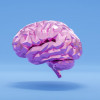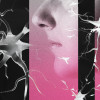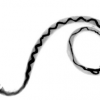Why Does Covid-19 Make Some People So Sick? Ask Their DNA

SARS-CoV-2, the pandemic coronavirus that surfaced for the first time in China last year, is an equal opportunity invader. If you’re a human, it wants in. Regardless of age, race, or sex, the virus appears to infect people at the same rate. Which makes sense, given that it’s a totally new pathogen against which approximately zero humans have preexisting immunity.
But the disease it causes, Covid-19, is more mercurial in its manifestations. Only some infected people ever get sick. Those who do experience a wide range of symptoms. Some get fever and a cough. For others it’s stomach cramps and diarrhea. Some lose their appetite. Some lose their sense of smell. Some can wait it out at home with a steady diet of fluids and The Great British Baking Show. Others drown in a sea of breathing tubes futilely forcing air into their flooded lungs. Old people, those with underlying conditions, and men make up the majority of the casualties. But not always. In the US, an alarmingly high fraction of those hospitalized with severe symptoms are adults under the age of 40. Kids, and in particular infants, aren’t invincible either.
To understand what accounts for these differences, scientists have been scouring the patchy epidemiological data coming out of hotspots like China, Italy, and the US, looking for patterns in patients’ age, race, sex, socioeconomic status, behaviors, and access to health care. And now, they’re starting to dig somewhere else for clues: your DNA.









































































